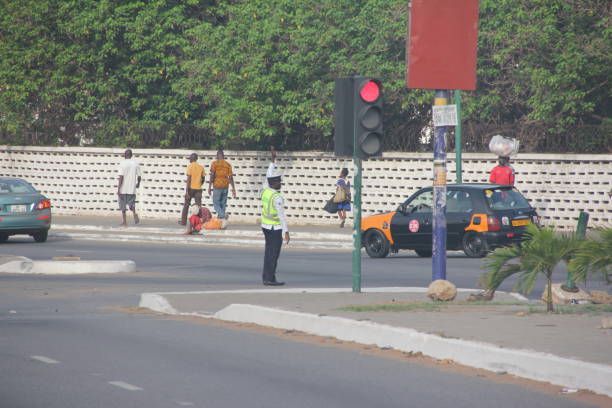If you have been on any road in Ghana, especially in Accra, then you would know how heart-wrenching traffic can get. And if you’ve been on the Nima circle stretch around midday, then you can withstand all the other traffic-bound routes in Accra.
I was relaxed after boarding a trotro on a calm mid-morning, when the vehicle came to a stop like it had been doing almost every 10 minutes since the journey started.
Usually, it would resume movement after a few minutes, maximum five. This time, it stayed longer than usual, and I wondered, is this my cue to sleep? Because usually when it starts getting this slow, you just know that you’re not getting to your destination any time soon.
Everybody else in the car, like me, was composed, yet waiting impatiently for the car to move, but it didn’t. Five minutes passed, then 10. The cars did move, and we followed closely, but at extremely slow paces. Almost 15 minutes later, I heard murmurs all around me in the car. People were getting agitated, and unfortunately, there was nothing the driver or any of us could do about it.
Something struck me when I eventually ducked my head out of the car for a moment to see for myself what was going on outside. There it was. The green traffic light just turned on, but instead of the cars in my lane moving, a police officer standing in the intersection took a step back, held his hand high, indicating for us to hold on while he ordered those at the opposite end to come along, with his other hand.

I was confused. Didn’t the traffic light just turn green for us to move? Why were we being stopped by the police? I finally got it. We were not following the traffic lights; we were actually following the police’s directions. Why? I asked aloud, without the intention of making it a conversation. But the man beside me heard and said it aloud for everyone else to hear.
Others ducked their heads out through the windows to confirm for themselves. This is where the conductor came in. “The first time I witnessed this, I was also very confused,” he said. According to him, he questioned another police officer about it, and he got an explanation.
He said the police officer taught him to obey the police’s instructions in traffic above all else, even when the traffic lights worked perfectly. This, he said, was because the officers may have some sort of knowledge about the road happenings in that moment that the traffic light obviously will not have. For instance, if there were an accident somewhere in the middle of the road, the traffic light wouldn’t perceive this. It will just keep doing its job, turning lights on and off. But the police officer will know how to direct the traffic accurately to enhance the flow of traffic despite the accident.
It made a lot of sense, but “that’s a first,” I thought to myself. I had never heard that. I was so sure that if I were driving my car and I found myself in this situation, I’d have driven past the police at the sight of the green light.
Indeed, human judgment takes precedence over machines. And in traffic, patience is a virtue, because unlike the speed traffic lights might bring to the flow of movement, the police officer is king. Going against them is at your peril.
So there we were, in the car, each with their patience, me with my newly found knowledge… and patience. Eventually, it was our turn and we moved smoothly to our destination.




